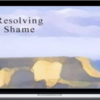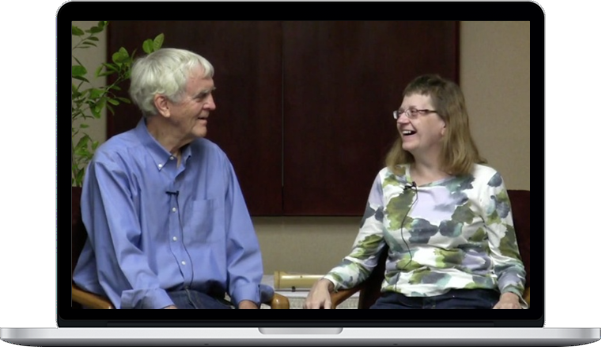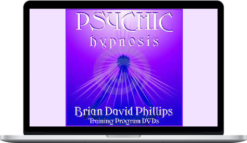Steve Andreas – The PTSD Training: Resolving PTSD
$325.00 $228.00
»Delivery: Within 21 days
Description
Steve Andreas – The PTSD Training: Resolving PTSD
Learn specific methods for successfully resolving the many aspects of Complex PTSD.
Know what to do, when, to get great results with your clients.
This training program in methods for resolving PTSD was produced in conjunction with, and in support of, The Research and Recognition Project.
PTSD is complex.
A single method isn’t sufficient to resolve most Post-Traumatic Stress Disorder.
In this online video training, you’ll learn complete treatment protocols for the phobic response of terror and the nightmares and flashbacks many PTSD sufferers experience.
You’ll also see demonstrations, discussion, and protocols for related problems that are so often a part of “complex PTSD”:
- guilt,
- grief,
- shame,
- anxiety,
- hypervigilance,
- anger/rage,
- and critical internal voices which often trigger these responses.
In all, 16 different methods are taught in this program, helping you cleanly sort and resolve all the aspects of PTSD that your clients present.
This may very well be the most comprehensive and useful training for resolving PTSD ever developed.
What You’ll Learn In The PTSD Training: Resolving PTSD
- How to identify and resolve the phobic core of PTSD.
- How to create alternative memories to help the client feel empowered instead of helpless.
- How to help clients reduce physical pains such as those from traumatic brain injury (TBI).
- Two different ways to use eye movements to help clients spontaneously resolve memories (and they are both gentler than EMDR).
- What to do when things do not go as planned (including a live demonstration!).
- How to build a life-changing experience that occurs before a traumatic event, making it easier to deal with.
- How to strengthen and adjust a client’s personal boundaries…or your own! (Great for “compassion fatigue.”)
- How to resolve grief by creating a sense of ongoing connection with the lost person.
- How to resolve anxiety, rage, or other strong feelings with one simple and dependable method.
- How to transform inner critics, bullies, and other troublesome internal voices into supportive allies.
- How to resolve anxiety caused by internal dialogue (without CBT!).
- How to sort out co-dependent and messy relationships with this powerful technique.
- How to forgive and resolve anger, effectively.
- Learn the differences between shame, guilt, and regret, and how to resolve each of them.
Course Curriculum
How to use this course
- Welcome
- How to best learn from this course
- Introduction
Video Lessons
- Video 1 – The Phobic Core of PTSD: Demonstration (32:58)
- Video 2 – The Phobic Core of PTSD: Discussion (76:55)
- Video 3 – Creating Alternative Memories (26:52)
- Video 4 – Pain Control (24:26)
- Video 5 – Eye Movement Integration (69:29)
- Video 6 – Eye Movement Integration: Further Discussion (44:42)
- Video 7 – The Decision Destroyer: Demonstration (47:20)
- Video 8 – The Decision Destroyer: Discussion (41:08)
- Video 9 – Personal Boundaries (26:40)
- Video 10 – Resolving Grief (60:01)
- Video 11 – Resolving Anxiety: Spinning Feelings (33:25)
- Video 12 – Transforming a Troublesome Internal Voice (76:48)
- Video 13 – Resolving Anxiety: Tempo Shift (30:14)
- Video 14 – Clarifying Relationships: Aligning Perceptual Positions (96:10)
- Video 15 – Forgiveness: Resolving Anger (64:29)
- Video 16 – Resolving Shame: Discussion (33:30)
- Video 17 – Resolving Guilt (37:44)
- Video 18 – Balancing Regret (52:55)
Downloads
- All handouts
- Audio files for download
About Steve Andreas
Steve Andreas, M.A. was a leader in the field of NLP for 4 decades. He authored or co-authored many books and training manuals including Heart of the Mind, Transforming Your Self, Transforming Negative Self-Talk, the NLP Practitioner Training Manual, the NLP Master Practitioner Training Manual, and more. Steve also produced over 50 therapy training videos and numerous articles.
He was an invited presenter at the Psychotherapy Networker Symposium, and the Milton H. Erickson Brief Therapy Conference for 25 years. Steve focused on PTSD treatment and interventions, and was on the Board of an NLP Research group running a clinical study on PTSD treatment.
The researchable NLP derived protocol, Reconsolidation of Traumatic Memories (RTM), has relieved PTSD symptoms in less than five hours in preliminary clinical trials. The research in progress with PTSD affected veterans is being conducted by staff from Syracuse and Fairleigh Dickenson Universities, through a grant from New York State. Additional research grants to study the RTM PTSD Treatment Protocol have been applied for by staff trained by Steve at Ohio University.
Steve and his wife Connirae developed or refined many approaches applicable to PTSD treatment, and their work has been published in over 15 languages.
More courses from the same author: Steve Andreas
Delivery Policy
When will I receive my course?
You will receive a link to download your course immediately or within 1 to 21 days. It depends on the product you buy, so please read the short description of the product carefully before making a purchase.
How is my course delivered?
We share courses through Google Drive, so once your order is complete, you'll receive an invitation to view the course in your email.
To avoid any delay in delivery, please provide a Google mail and enter your email address correctly in the Checkout Page.
In case you submit a wrong email address, please contact us to resend the course to the correct email.
How do I check status of my order?
Please log in to HealingCourse account then go to Order Page. You will find all your orders includes number, date, status and total price.
If the status is Processing: Your course is being uploaded. Please be patient and wait for us to complete your order. If your order has multiple courses and one of them has not been updated with the download link, the status of the order is also Processing.
If the status is Completed: Your course is ready for immediate download. Click "VIEW" to view details and download the course.
Where can I find my course?
Once your order is complete, a link to download the course will automatically be sent to your email.
You can also get the download link by logging into your HealingCourse account then going to Downloads Page.






